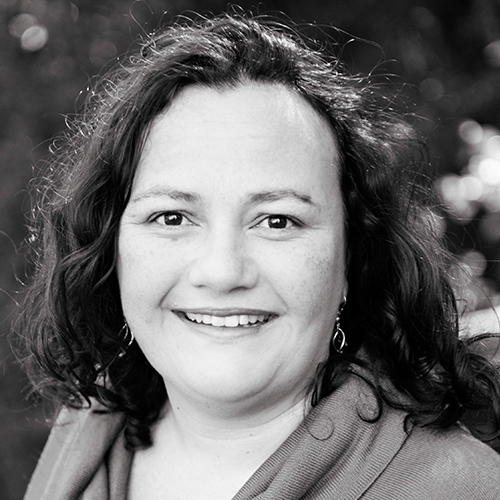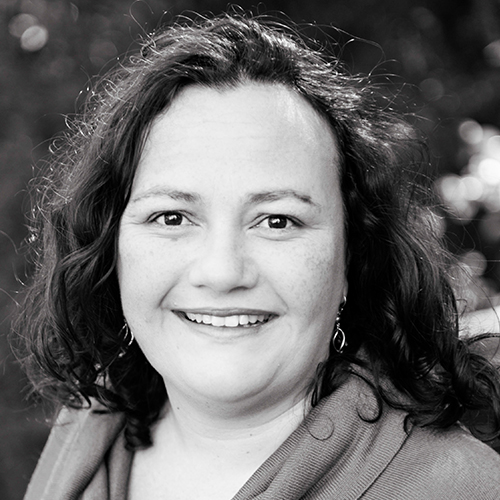 Decision Making & Consent Online Course(s) & Continuing Education
Decision Making & Consent Online Course(s) & Continuing Education
Access the latest clinical skills and research for Decision Making & Consent for PREGNANCY, LABOUR & CHILDBIRTH professional training. These Decision Making & Consent online courses provide practice-changing skills and valuable perspectives from leading global experts. This Decision Making & Consent education has been accredited for a variety of CEUs / CERPs and can be accessed on-demand, at your own pace.


Sarah Mlambo is a registered Nurse and Midwife who has international and intercultural nursing and midwifery experience in both the public and private sector. She has several qualifications from Zimbabwe, Namibia and South Africa. Sarah Mlambo is currently finalising her PhD where she focusses on a model for midwives in the facilitation of childbirth-choices. She is a published author and Midwifery educator in Namibia.
“Incomplete, inaccurate, biased or unavailable patient education, resources and lack of opportunity for pregnant patients to have meaningful conversations with their healthcare providers about their individual care” (Stirling, Vanbeisien & McDougall, 2018, p. 13) is a major setback when women are being facilitated with childbirth-choices. Initiating the facilitation of childbirth-choices early in pregnancy gives the woman some time to weigh the options and for the healthcare provider to clear any misconceptions relating to childbirth types, yet this is a largely un-investigated area of concern in Namibia.
Improving the outcomes for women to have a positive childbirth experience and ensure that the SDG 3 of health for all is achieved exploring the experiences of women and that of midwives was important to ensure the former. Taking into consideration the Universal Rights of Childbearing women and Respectful maternity care (RMC) with a special focus on two of the rights which are “right to information, informed consent and refusal and respect of her choices and preferences, including the right to her choice of companionship during maternity care &” and “right to liberty, autonomy and self-determination and freedom from coercion”. This presentation will contextualize the experiences of women and midwives alike in the facilitation of childbirth-choices. A developed model that will help midwives in the facilitation of childbirth-choices for a positive childbirth experience for women and their families.

View Details / Enroll

Decision Making and Psychiatric Medications in Pregnancy and Lactation

Rebecca Feldman is Certified Nurse Midwife, and Psychiatric Nurse Practitioner who practices in a dual role in the field of reproductive psychiatry. She is the founder and director of Brooklyn Parent Support, a group mental health practice providing group and individual therapy and medication management. Rebecca is a graduate of Frontier Nursing University in midwifery, and New York University with a Post Master’s in Psychiatric Nursing. She has practiced perinatal psychiatry at the Motherhood Center of New York, and Zucker Hillside Hospital. As a midwife, she created a mental health program housed within the Department of Obstetrics and Gynecology at Woodhull Medical Center, a large public hospital in Brooklyn. She is currently an adjunct professor at New York University, providing lectures to the midwifery and psychiatric nurse practitioner programs. A frequent guest speaker on the topic of promoting access to parental mental health care, she has recently presented for the American College of Nurse-Midwives, the National Perinatal Association, and Postpartum Support International.
Perinatal mood and anxiety disorders are the most common complication of pregnancy. Midwives have a key role to play in assisting clients with decision making around use of psychiatric medications in pregnancy and lactation. This presentation will explore client considerations around mental health in pregnancy and postpartum, including the risks of untreated mental illness in these life phases. How midwives may counsel their clients as well as when to refer them for mental health care, will be an additional element of this presentation.
Common Post-partum Mood and Anxiety Disorders will be described in detail as well as a summary of evidence-based treatment options. Following this part of the presentation, the main classes of psychiatric medications commonly used in pregnancy and lactation will be described. Considerations for the use of SSRIs, atypical antipsychotics, mood stabilizers and benzodiazepines will be discussed.

View Details / Enroll


Debby Gould is a ‘BirthCare’ consultant providing education, support and counsel to women, partners, families and health professionals. Her goal is to provide transformational care to support education, empowerment and healing. She is an author of the book, ‘How to Heal a Bad Birth – Making Sense, Making Peace & Moving On’ and Co- Director of Birthtalk.org. Originally, a registered nurse she further trained and worked as a midwife, and is now a birth; educator, worker and counsellor, international author, speaker and mother of two children. For over twenty years she has supported women and men in the journey to healing after a traumatic birth, enabling women to make sense of their experience and its impact, offering hope for healing, and providing support and tools to process and make peace with what happened. She has shared in receiving the honour of a Lord Mayor’s Australia Day Community Achievement award for this work. Debby has been Birthtalk’s primary educator and facilitator of Healing From Birth meetings. She has presented for the ACM, Hypnobirthing Australia, Capers, Homebirth Australia, Australian Breastfeeding Association and various other maternal health and midwifery conferences. She guest lectures to Bachelor of Midwifery students at several Universities, and gives presentations for The Australian Doula College, Friends of the Birth Centre, Red Tent festival and other community groups. She also provides professional development for hospital midwives and doulas on the topic of Birth Trauma and how to support women to heal and have better births. She has co-written articles for Birthtalk’s blog “The Truth About Traumatic Birth” and has appeared in the media including radio, newspaper, birth and parenting magazines and podcasts and in the recent birth documentary ‘Birth Time’ as an experienced health professional’s voice to the issue of the importance of birth and traumatic birth.
Traditionally, an outcome focus has often been considered as the measure of ‘success’ in birth. When it comes to consent, that outcome tends to be ‘a live healthy baby’ and ‘the authority to do what is deemed desirable or necessary’. Considering an epidemic of birth trauma and the associations with the #metoo movement in birth, it is evident that this is not success for women and families. It is a narrow and damaging view that needs to be explored, understood, and changes made. The process of consent is valued, tangible, ethically and legally sanctioned, and provides key moments in care, to incorporate such change. A paradigm shift around consent is vital to address the experiences of assault and trauma in perinatal care. Conversation with families about consent is also a potential starting point to consciously address and intervene in damaging processes, and improve experiences, that could then be normalized and ripple out across all care delivery. Practical measures around consent and care processes will be explored with the aim to offer an intervention, when used consistently, to break the human mode of transmission of birth trauma, metaphorically, much like handwashing in our current pandemic.

View Details / Enroll

Family Centred Midwifery Care in Practice

First and foremost I am a mother, wife and latterly grandmother, my personal life has always largely informed my practice and I am always careful to remember that the women I meet are also like me in that they belong to a family.
I am a freelance consultant midwife one of the first in the UK and formerly employed at 2 very large and diverse maternity units. My career started in the 1970’s in nursing however midwifery was always my ambition and particularly the nurturance of midwifery led care.
I am a practicing psychotherapist interested in the emotional impact of childbirth; in part due to my own mothering experiences and research. I have worked closely with women to understand this phenomenon and researched emotional transition to motherhood.
Raising awareness for maternal mental health and particularly women surviving sexual abuse, I co-founded Sanctum Midwives campaigning on maternity care and sexual abuse. I have worked for many years raising awareness around the issues of maternal mental health and supporting both women and all those who work in maternity care situations. I believe positive mental health is the cornerstone to mothering and self fulfilment.
I have published widely in peer review journals but also in many books. My latest publication is ‘Understanding Anxiety, Worry and Fear in Childbearing Women’ which I edited and wrote 4 chapters. I am currently writing on the issues of child and adult female sexual abuse and its implications.
I care very deeply about women and their babies that they may come through their pregnancy and birth unharmed. I will continue to do this for the sake of midwives everywhere.
In 2016 National Health Service (NHS) England produced a report that is to be ground breaking in its ambitions and is part of the NHS Long Term Plan. The review team spent a whole year meeting with families, midwives, obstetricians and voluntary sector groups. This review team was led by Baroness Cumberledge, she understood the issues and was able to steer this work to its most important conclusion – personalised care centred around the woman and her family gives the best physical and psychological outcomes. The vision for maternity services across England is for them to become safer, more personalised, kinder, professional and more family friendly; where everywoman has access to information to enable her to make decisions about her care; and where she and her baby can access support that is centred around their individual needs and circumstances. If a small group of midwives managed the care of the woman, near to her home and she has access at all times to the information, choices about her birthing options then the benefits were huge. A reduction in premature birth, reduction in stillbirth, less risk of perinatal illness and of course reduction in maternal deaths. This is the reality for maternity services and now we are partway through implementation. I will present some of the realities for this model and the benefits for women and their families.

View Details / Enroll


Molly Dutton-Kenny is an American & Canadian midwife. Trained in the USA in community homebirth midwifery, she now makes Canada her home and practices as a Registered Midwife with her loving family & community. She supports education for midwifery students through National Midwifery Institute, and community education around full spectrum pregnancy loss and abortion, respectful pelvic exams, and midwifery-based management and support of these experiences, centering home and holistic medicine as options for most people. You can read more about her work at www.mollyduttonkenny.com.
Pelvic Exams are so commonplace in midwifery practice that we often fail to appreciate their significance in our client’s lives. Pelvic exams have the potential for both trauma and trust-building in the midwife-client relationship.
Trauma manifests in our clients lives and bodies in a myriad of ways. Statistically, a majority of our clients have experienced various direct traumas in their lives, with a significant portion focused on pelvic trauma & assault. Additionally, clients hold the epigenetic trauma from historical wrongs in gynecology and treatment of bodies in various lineages as a result of white supremacy and toxic patriarchy.
All bodies deserve respectful care. When done carefully, pelvic exams have the potential to be safe, trust-building experiences with the benefit of seeking key medical information. Together, we will interrogate the common pelvic exam from a trauma-informed lens and consider our practices carefully. We will build strategies for respectful pelvic exams, including managing pain & anxiety in clients, what to do when clients do (and don’t!) disclose past trauma, avoiding triggers, and consider modifications to our own practices.


Stephanie Tillman (she/her) is a midwife at the University of Illinois at Chicago. She completed her undergraduate degree in Global Health and Medical Anthropology at the University of Michigan, and her graduate degree in Midwifery at Yale University. She is on the Boards of Directors of Nurses for Sexual and Reproductive Health (NSRH) and the Midwest Access Project (MAP), is an Advisory Committee Member of the Queer and Transgender Midwives Association (QTMA), and is a member of the ACNM Ethics Committee. She is currently a Clinical Medical Ethics Fellow at the University of Chicago's MacLean Center, where she is focusing on consent in intimate exams. Stephanie blogs under the name Feminist Midwife, and through that online platform, academic and public writing, and professional speaking engagements, seeks to interact with providers and consumers in conversations about consent in health provision, queer care, sex positivity, nurses and advanced practice clinicians in abortion care, and trauma-informed frameworks. Find her on social media @FeministMidwife.
The framework of trauma-informed care first emerged in the 1990s, proposed by sexual assault survivors as a structure for safe engagement with healthcare institutions and providers. Decades later, this approach to intimate care continues to exist more in theory than in standard practice. Exceptionalized circumstances in obstetrics and gynecology, such as the first pelvic exam, care for patients with a known history of sexual assault, or care for queer communities, often embody the ideals of trauma-informed care that could easily be extrapolated to all care interactions. The importance of intentionality in intimate care, including consent processes as well as physical touch, is all the more critical given publicized cases of providers physically and sexually assaulting patients. Further, as COVID-19 continues to affect individuals and communities worldwide, trauma now touches every person’s life in new and challenging ways. This holds the opportunity to facilitate a connected empathy between patients and providers, and thus a new possibility to integrate trauma-informed care into practice. This presentation will review the framework of trauma-informed care, detail best practices for pelvic care, discuss the impact of COVID-19 on intimate examinations, and challenge providers to modify current practices in order to create safe environments for empowering healthcare experiences.

View Details / Enroll















